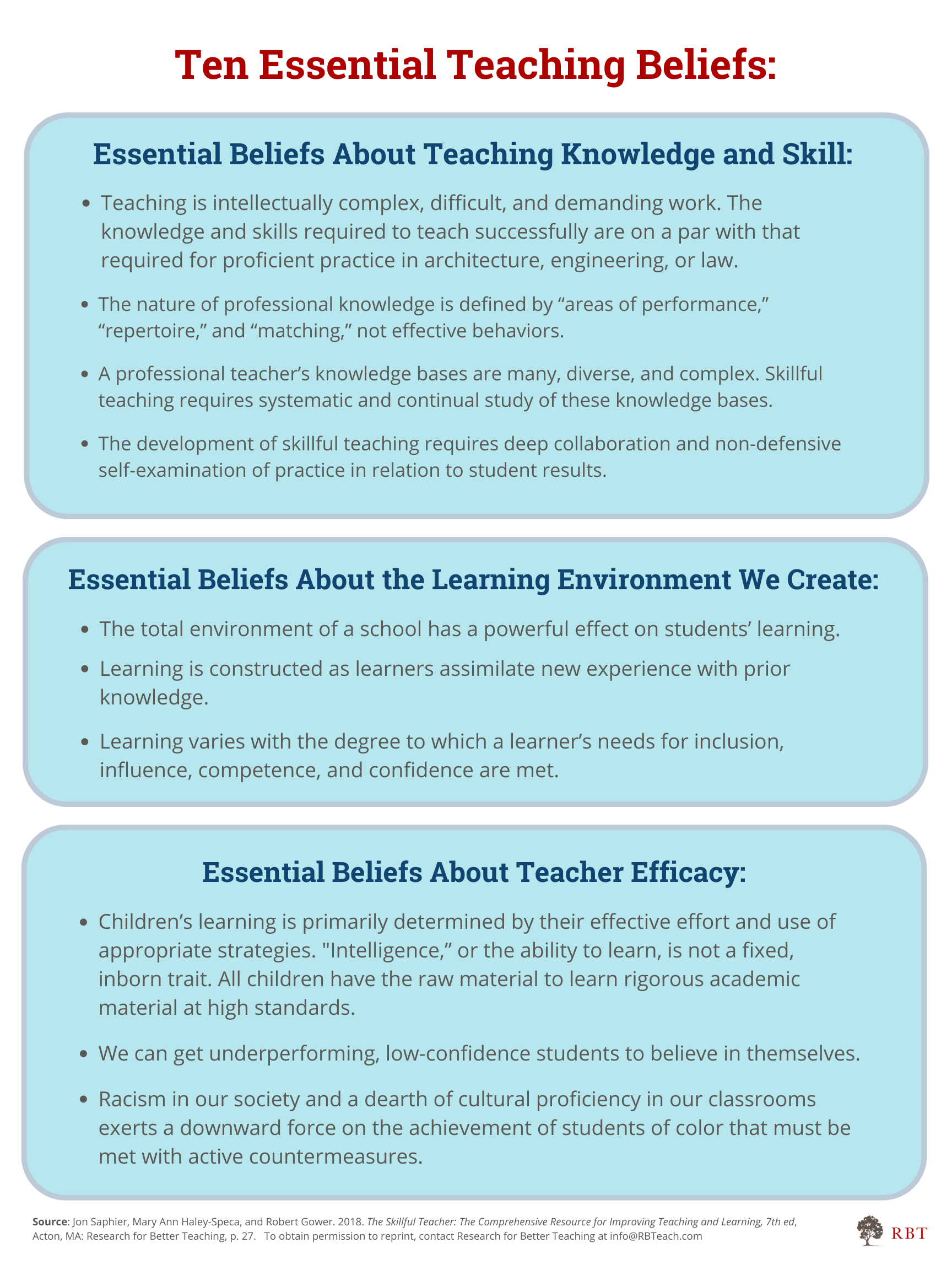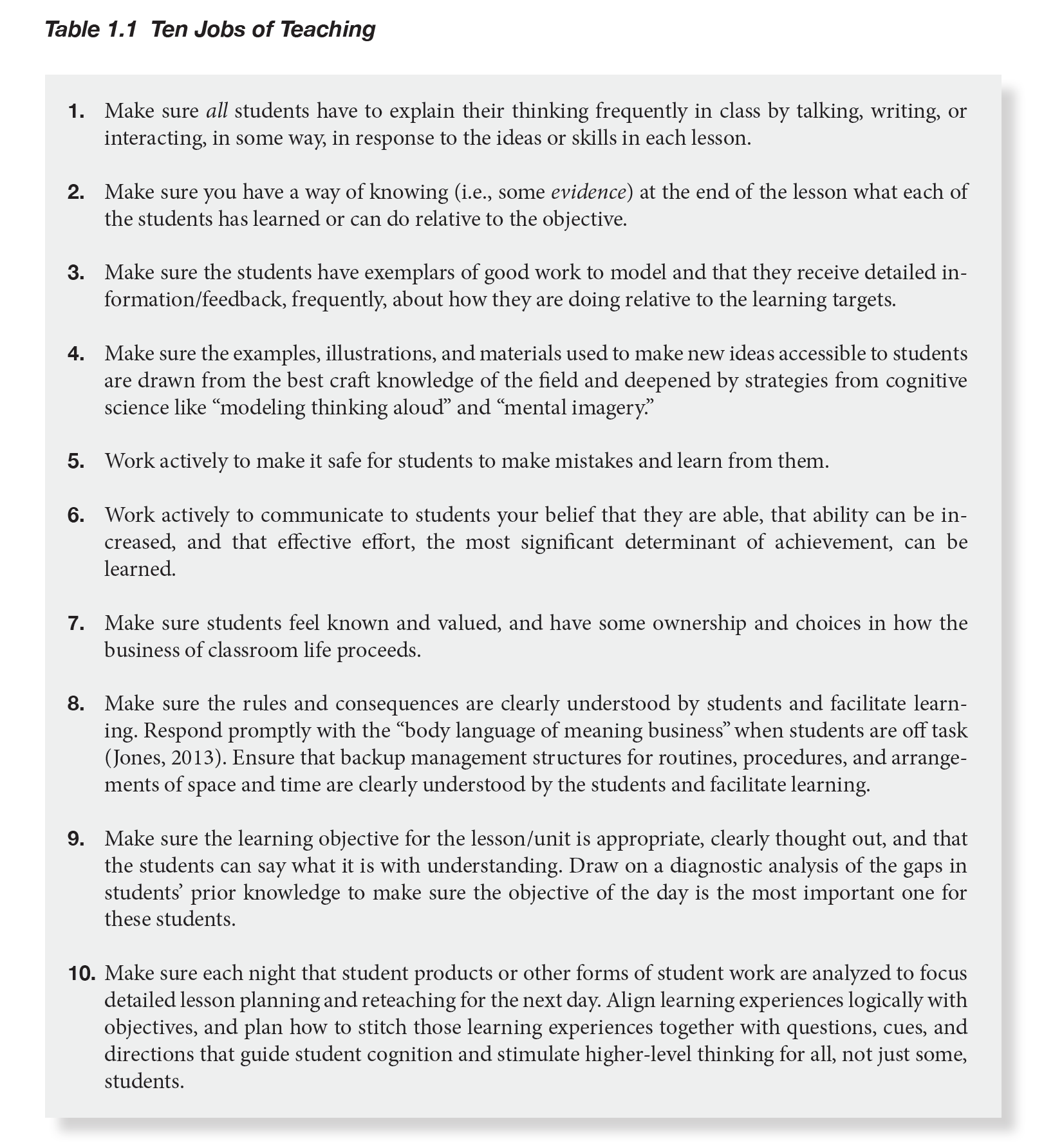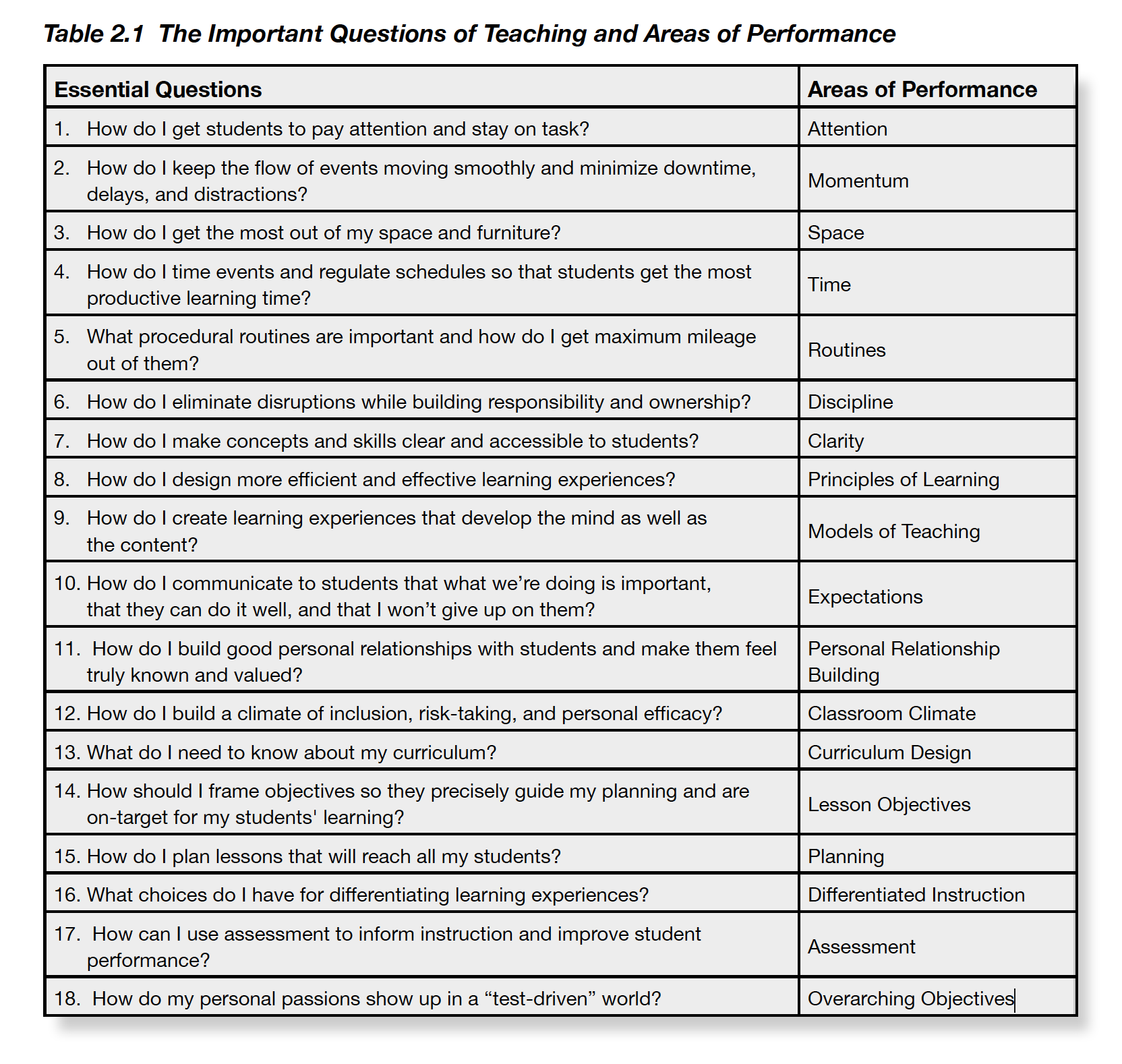New School Year: Start at the beginning
As you begin to think about the new school year and what you hope to accomplish, it may help to take a step back and begin by first reconnecting with what drew you to teaching in the first place, and to reexamine your beliefs about and commitment to your students.
At RBT, we hold that there are some shared essential beliefs that bond us together in this complex profession.

There are certain beliefs about children, about professional learning, and about schools that bear heavily on a teacher’s willingness to learn, and what it is he or she feels impelled to seek to learn. Without these beliefs, teachers are not committed to stretching themselves to acquire the expertise that none of us starts with. Beliefs drive behavior, are often unexamined, and are resistant to change. Without understanding one’s beliefs, it is impossible to understand one’s attitude and motivation to learn new skills and approaches to teaching. |
The Skillful Teacher, 7th Editionpage 9 |
Which belief is worth examining more deeply this year as you get ready for your students’ arrival in September?
Starting from the foundation of these beliefs, we posit that skillful teachers are made, not born. Becoming a skillful teacher takes a deep commitment to ongoing learning - to continually expanding your knowledge or repertoire- in order to make the best match to your students, content, and/or context.
How do we define a skillful teacher?
- Skillful teachers are aware of the complexity of their job and work to be conscious and deliberate about what they do. They don’t do what they do just because that is the way it has always been done or because that’s the cultural expectation of how it shall be done. They do what they do because they have thought about it and made choices from a repertoire of options that seem best.
- Skillful teachers want to control and regulate their teaching to have a positive effect on their students. They monitor what they do, get feedback, and try different things. Skillful teachers are determined that their students will succeed. When that isn’t happening, they examine their practices.
- Skillful teachers are clear about what is to be learned, what achievement means, and what they are going to do to help their students attain it. If one thing doesn’t work, they make another plan that is also technically clear and well thought out.
- Skillful teachers are learners—always a student of teaching, as Joyce, Clark, and Peck (1981) said long ago. Skillful teachers constantly reach out to their colleagues with an assertive curiosity that says, “I don’t know it all. No one does or ever will, but I am always growing, adding to my knowledge and skills and effectiveness.” To skillful teachers, that openness and reaching out is an important element of professionalism.
With these beliefs and the definition of a skillful teacher in mind, consider the following ten areas, what we define as the Ten Jobs of Teaching:
Source: Jon Saphier, Mary Ann Haley-Speca, and Robert Gower. 2018. The Skillful Teacher: The Comprehensive Resource for Improving Teaching and Learning, 7th ed, Acton, MA: Research for Better Teaching.

Do you have plans in place to ensure that each of these jobs get accomplished this coming year?
Another way to consider framing the coming year is to answer the questions below:
Source: Jon Saphier, Mary Ann Haley-Speca, and Robert Gower. 2018. The Skillful Teacher: The Comprehensive Resource for Improving Teaching and Learning, 7th ed, Acton, MA: Research for Better Teaching.

Which focus would be of most benefit to your students?
Starting with these questions will help you identify where you feel confident in your plan for the upcoming year, and where you may need a little more guidance or might like to try something new.
We encourage you to dive into the topics by:
- Reading The Skillful Teacher, 7th Edition - area of performance/chapter as indicated above
- Taking a look at our resource materials that accompany the book
- Viewing our videos (filter by area of performance)
- Browsing our blogs for relevant articles
- Reaching out to a colleague
And, as always, we are here to support your ongoing professional development. Get in touch to share your thoughts, questions, challenges, and successes.